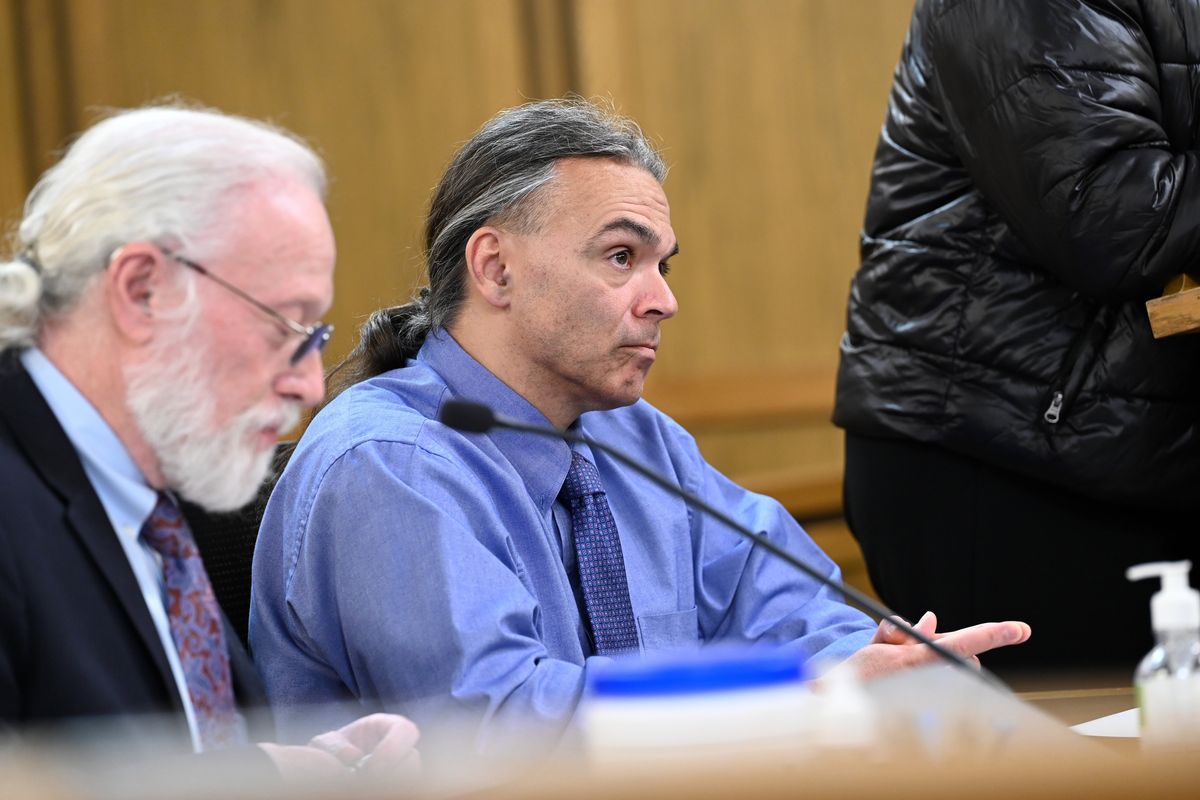‘I was a monster’: Spokane man convicted for 1994 murder of Felicia Reese to be sentenced a third time after law change for convicted minors

Kevin Boot described his 17-year-old self as a monster – one who ran away from home, got involved in the wrong crowds, did drugs, robbed people on the street and participated in the murder of 22-year-old Felicia Reese 30 years ago.
Boot is 47 now. As he sat on the stand Wednesday during his resentencing hearing, he described his goal to change himself from prison, even when he believed he’d die in a cell.
“It was more day-to-day survival. I didn’t think of the future ‘cause there was no future,” Boot said. “But at some point in our lives, we have to decide whether to do good or do bad, and I wanted to do good.”
In 2012, the U.S. Supreme court ruled that handing down life sentences to minors was cruel and unusual, therefore unconstitutional. Boot was resentenced in 2017 to 50 years to life, but an appeals court ruled the new sentence was just a “de facto life sentence,” ordering a third sentencing hearing for the convicted murderer.
Reese was six months away from her wedding when she was kidnapped Dec. 27, 1994, from the parking lot of the Sheraton-Spokane Hotel where she was attending a Christian conference, according to previous reporting from The Spokesman-Review. Boot and his 16-year-old cousin, Jerry Boot, drove her to Minnehaha Park, where she was shot three times in the face. Her body was found near the river.
Boot admitted to participating in the killing when he took the stand in his 1996 trial. He claimed his cousin was the one who killed Reese. When Jerry Boot was set to go to trial, he pleaded guilty to reduced charges and was sentenced to 35 years in prison.
But Kevin Boot got life. In court Wednesday, Boot, his supporters and lawyer described how he entered the Washington State Penitentiary in Walla Walla as a short, skinny, fair-skinned Black man who looked much younger than 18. There were things he’d do to survive – assert dominance, get in fights and try to find a clique that would accept him.
Boot’s grandparents eventually died, his father was in and out of prison, and his mother was an addict, Boot said. He had nobody – until he met Grady Mitchell.
Mitchell, Boot’s cellmate of 15 years, served 37 years for murder before he was released in 2021. He recognized a kid in need of help, he said on the witness stand Wednesday. Mitchell slowly got Boot to open up, accept responsibility for his actions and led him to understand the trauma Boot had inflicted on others, as well as understand the trauma in his own life.
Mitchell is now a trauma trainer for Roots of Success, an education program for incarcerated people.
“My wife and I talked, and we talked with (Kevin) and decided he would be our son,” Mitchell said, later telling the judge that he’d bet his freedom on Boot never re-offending again due to his rehabilitation in prison. “It was like a light came on.”
Boot started leading self-help and violence prevention classes in prison, though there was no chance at getting out – until the U.S. Supreme Court ruling in 2012. That’s when he found defense attorney Jeffry Finer.
Finer, in Boot’s hearing Wednesday, told Spokane Superior Court Judge Raymond Clary that Boot checks all the boxes for a lesser sentence. Finer asked for 30 years to life, while the prosecution asked for 40. There was support for Boot in the courtroom.
But Mike Fredericks, a friend of Reese’s family, stood to read a statement on behalf of her mother, Maggie Bucher. Bucher said all of Boot’s resentencings are an “injustice to the memory of my only child.”
“I have no interest in trying to understand what is deemed fair punishment for taking someone’s life,” Bucher wrote, pleading for the maximum sentence the judge would be able to give. “He took my baby from me… My soul aches every single day since my beloved daughter was thoughtlessly murdered.”
Boot took the stand and told the courtroom through quiet sobs that he cannot change what happened that December night.
“To Felicia’s family, I’m so sorry,” Boot said. “To my family and friends, thank you for being here. I’m sorry you have to deal with this, and the whole community … That night … I spent a lot of time in my life trying to make up for it. I’m gonna keep trying to make up for it.”
While Clary grappled with how to sentence Boot in regards to case law, he noted that it is “one of the most challenging legal settings” he had ever been in, as Clary was also the same judge that resentenced Boot in 2017.
There aren’t many guidelines when it comes to resentencing juveniles based on former life sentences, Clary said, so he will be taking Wednesday’s arguments under advisement.